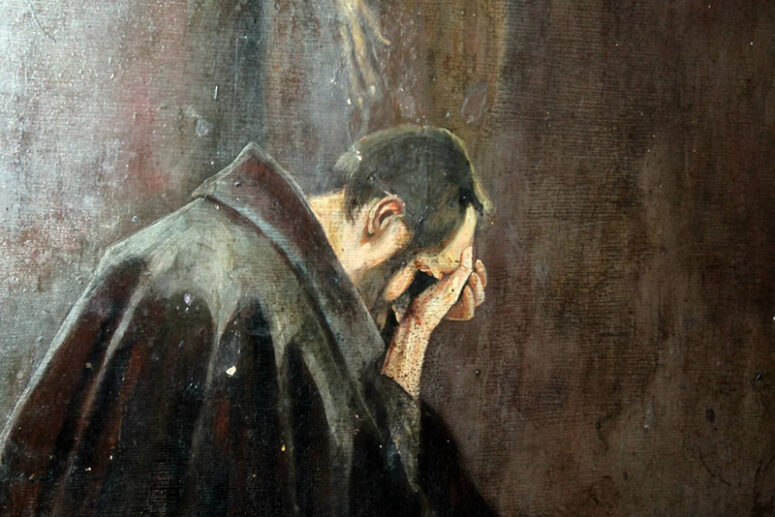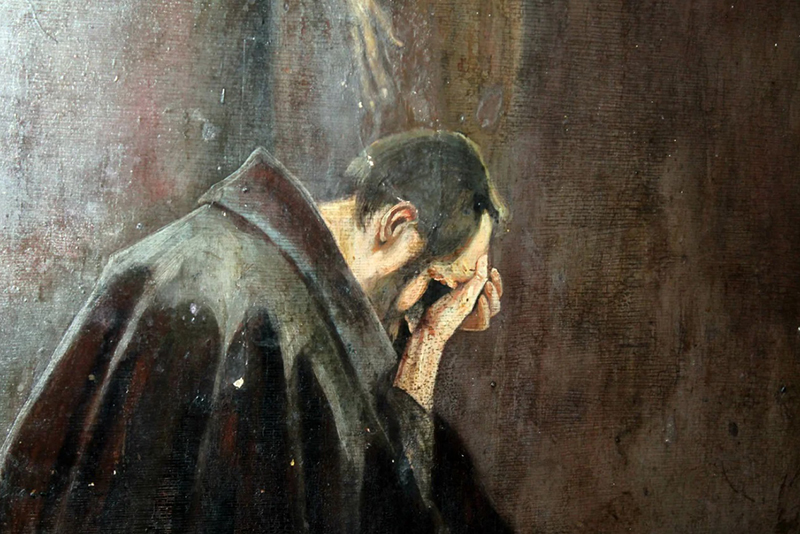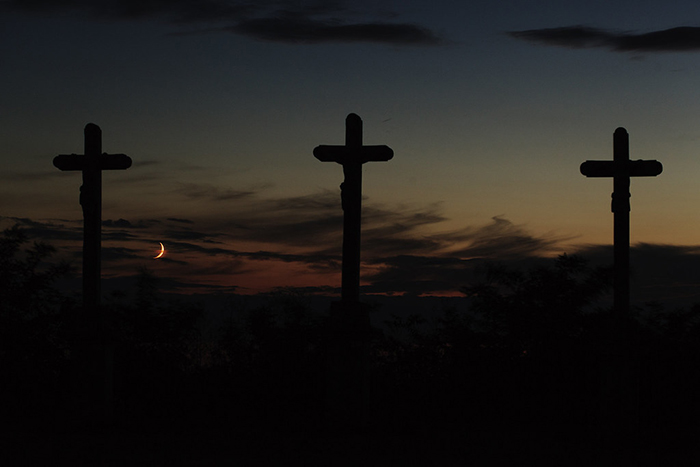
There is not a man on earth who never sins. (see Eccl. 7:20).
After the Fall of our ancestors, human nature became prone to sin. Even in Baptism, when a person promises to begin a new life, he does not obtain immunity against sin. Venerable John calls repentance “the renewal of baptism and a covenant with God for the correction of life.” Repentance puts a person on the way of learning the fundamental Christian virtue of humility. He calls the process of repentance “the purchase of humility.” Humility gives us the opportunity to be reconciled with God, ourselves and with other people, thus becoming “real”.
St John sees repentance not in words, but in the unceasing rejection of bodily consolation, in thoughts of self-condemnation and concern for oneself. At the same time he sees it free from external concerns, for a truly repentant person has no time to think about the mistakes and sins of others.
The fruits of repentance are the hope of salvation and rejection of despair, reconciliation with the Lord through doing good deeds contrary to previous sins, and cleansing of one’s conscience.
The sign of a truly repentant person is his willingness to voluntarily endure and even invent all kinds of sorrows and punishments for himself. Outwardly, repentance manifests itself in strong austerity. Inwardly it is accompanied by a deep feeling, stinging the soul. Experienced elders note that usually those who do not know how to repent are incapable of deep feelings. Instead, they work hard to educate the mind and acquire much knowledge. This is not a problem, for there are many highly educated people among the saints, but without repentance and humbleness, such people usually find themselves on the other side of the church fence, in the ranks of schismatics, sectarians or open fighters against God.
The venerable encourages the repentant Christians who fall into the same sins for a second time not to despair: “Do not be surprised if you fall every day and do not surrender.
Stand your ground bravely. And you may be sure that your guardian angel will respect your endurance.”
At the same time, the saint urges not to postpone repentance, for “…while a wound is still fresh and warm it is easy to heal, but old, neglected and festering ones are hard to cure, and require for their care much treatment, cutting, plastering and cauterization. Many from long neglect become incurable. But with God all things are possible (Matt. 19:26).”
According to St John, repentance indicates the presence of spiritual life in a person, while those who do not repent live their life in vain. “He who really keeps account of his actions considers as lost every day in which he does not mourn, whatever good he may have done on it.”




